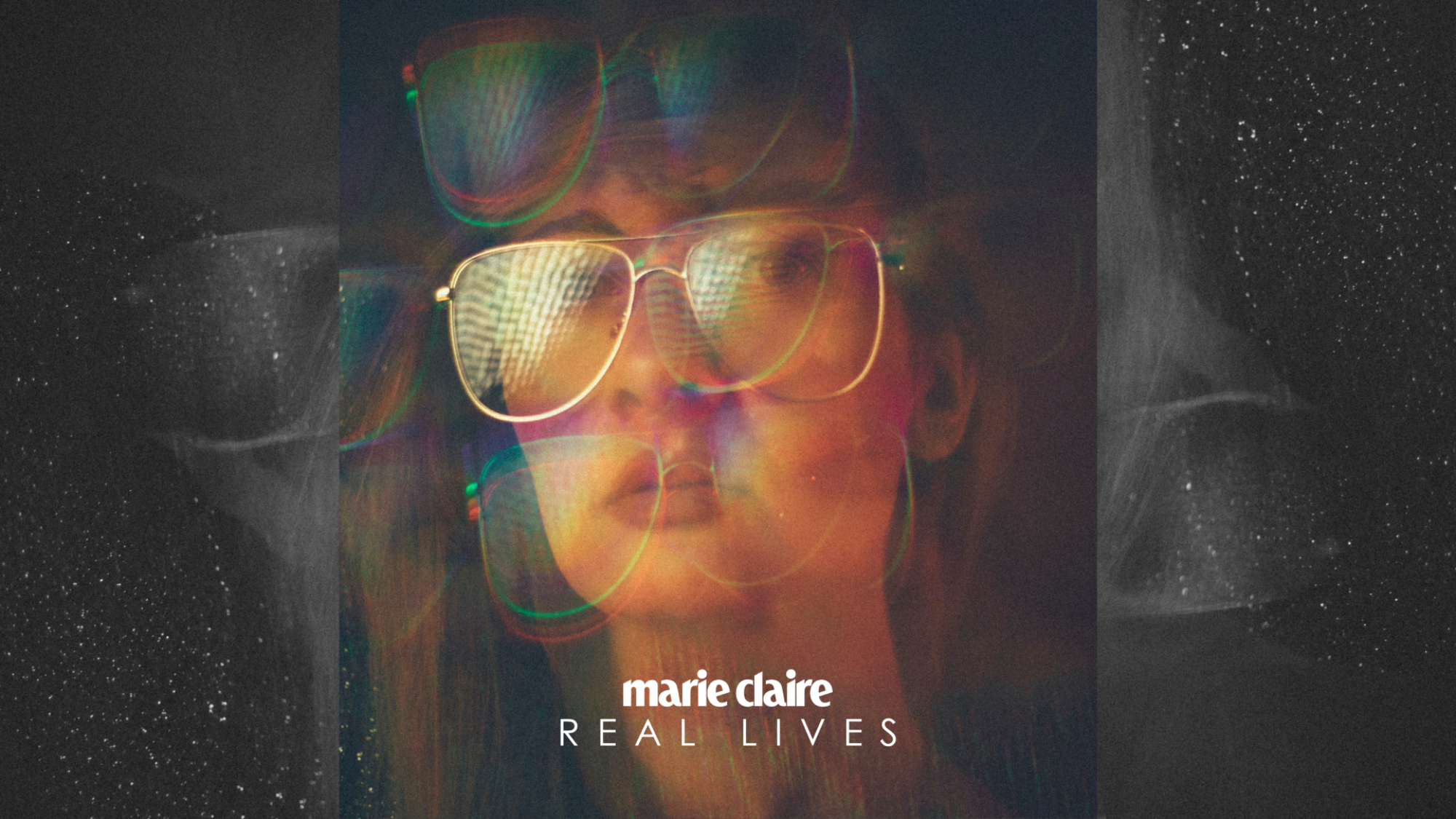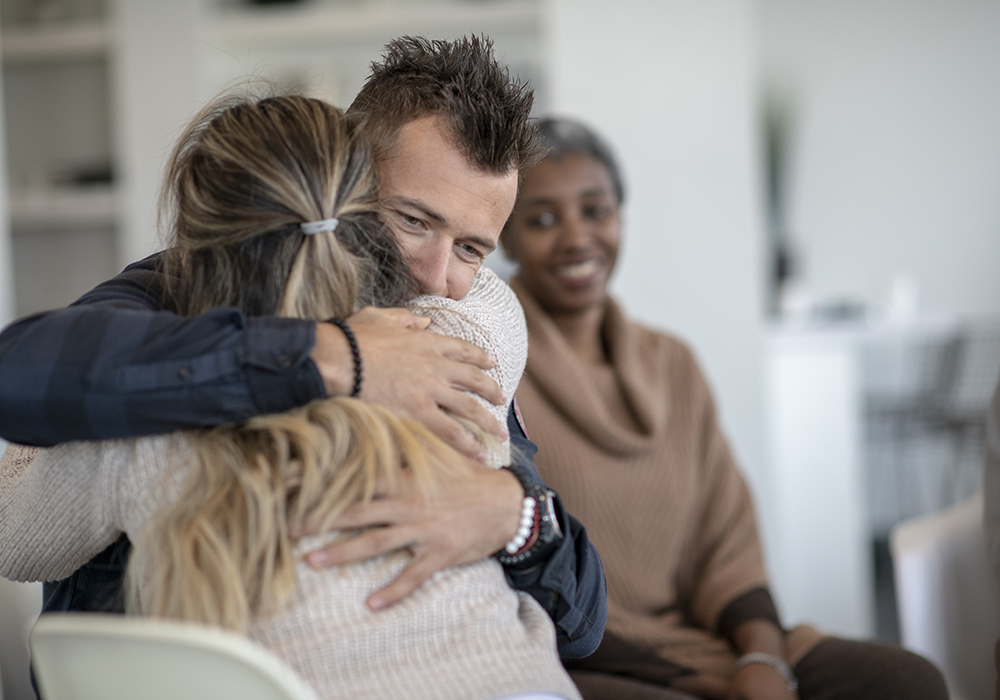What it feels like to check yourself into rehab for drugs
Ever wondered how it would feel to admit yourself to rehab? This woman did. Here's what she said.

Celebrity news, beauty, fashion advice, and fascinating features, delivered straight to your inbox!
You are now subscribed
Your newsletter sign-up was successful
Rehab, for many, is the only way to get their lives back from the ravages of drug and alcohol addiction. Here, one woman shares her story
No, not the Amy Winehouse song: going to rehab for drugs, for many grasped tightly in the clutches of addiction, is the only way out of a spiralling, devastating life path.
According to Rehab Online, the term residential rehabilitation, or rehab for short, 'describes a drug or alcohol treatment programme that is provided in a residential setting.' Centres across the UK dubbed as 'safe havens' promise to help you kickstart the process of rehab for drugs, aka get clean from your addiction, and offer expert therapy sessions to ensure you don't return to your old destructive habits.
There are more types of addiction than you can imagine—love addiction, sex addiction, porn addiction—but all result in the addicted party hurting themselves and the people around them, too.
As per the NHS website, you are not alone. If you have a drug or alcohol addiction, there are a wide range of services set up to help you. If you or someone you know is currently struggling with addiction and may need to go to rehab for drugs, Start Your Recovery and Drug Addicts Anonymous (DAA) are geared up to help and support you. Simply head to their website for more information, or check out the NHS resources available on their site.
Going to rehab for drugs: What it's really like
"The first time I went to rehab, I didn’t think I was an addict. There I was, calling a charity hotline, begging them to help me, and I still didn’t think I had a problem. I knew something was wrong (I’d been caught shoplifting to fund my habit, which I never thought I’d do), and I thought maybe I was partying too hard. Sure, I was the one who took things one step further than my friends – I was the one who lit up a crack pipe or loaded a syringe with heroin. But ‘addict’ didn’t feel like me."
Addict didn't feel right
"The charity I called reacted quickly. Within a week, they’d found me a ‘dry house’, where I lived with six other addicts, who held my hair when I was sick and gave me water when my lips were chapped. By day, we’d go to therapy, by night we’d withdraw."
Celebrity news, beauty, fashion advice, and fascinating features, delivered straight to your inbox!

"I was on so much Prozac, I didn’t feel anything other than nausea and vague excitement – I thought it was as simple as getting the drugs out of my system and starting over. At each group session, my councillor would say to me, ‘Do you have anything to share?’ And I’d always reply, ‘No, I’m fine,’ with a grin on my face. I wasn’t like the rest of them, I told myself."
Realising the problem
"A week before my discharge, I had a breakdown. I sobbed for hours, as I realised there was something deeply wrong with the way I’d been treating myself, and that I had no one else to blame for ending up where I was."
"I was sitting on a cold plastic chair in a grey room in Liverpool, miles from home. I’d lost my job in a restaurant, my son was living with his dad and nobody had called me in weeks. And it was all my fault. But, seven days later, my time was up. I headed home, and relapsed almost immediately."
"As my friends begged me to get help, I called the same charity, tears streaming down my face with the humiliation of it all. They were firm, but offered to finance a six-week stay in a residential rehab centre with 25 other patients. I remember being really nervous. I knew this was my last chance."
"The centre was pretty luxurious. There were huge grounds where we’d go for walks, the food was delicious and the beds were comfortable. But beautiful surroundings can’t make up for the hard truths you have to face in rehab. You can’t leave, so there’s an air of suffocation, and every moment is accounted for. Your only free hour is on Saturdays, when everybody just watches TV. The rest of your time is spent in therapy, either on your own or with a group, and you’re constantly being forced to tell strangers your darkest, most shameful secrets."
Addiction affects everyone
"One day, I had to have a session with my dad. He spoke of his never-ending fear that I’d relapse, and what it was like thinking your daughter was going to die. It was awful, but I needed to hear it. Until then, I hadn’t realised how selfish I’d been. I hated every minute, but that night, I lay in bed and thought, ‘I did it. I’m getting somewhere."
"Still, success wasn’t guaranteed. Some people would sit with their arms crossed, refusing to open up. I knew I had to keep away from them – they were how I used to be, and I was so scared of falling back into old habits. We were also forced to tell people exactly what we thought of them, which I struggled with at first. I used to do anything to avoid an argument. But, with daily practice, I learned to resolve conflicts in my life, and myself."
"After six weeks, I was released and went back to live with my son. I retrained as a masseuse, began attending AA and NA meetings twice a week and started weekly phone chats with my therapist. I’ve now been sober for two years, three months and three days. But not everybody managed it – out of the 25 people I was with in the centre, four have died and only two of us are drug-free. Every time I hear about another relapse, I tell myself, ‘That could have been me.’"
The leading destination for fashion, beauty, shopping and finger-on-the-pulse views on the latest issues. Marie Claire's travel content helps you delight in discovering new destinations around the globe, offering a unique – and sometimes unchartered – travel experience. From new hotel openings to the destinations tipped to take over our travel calendars, this iconic name has it covered.